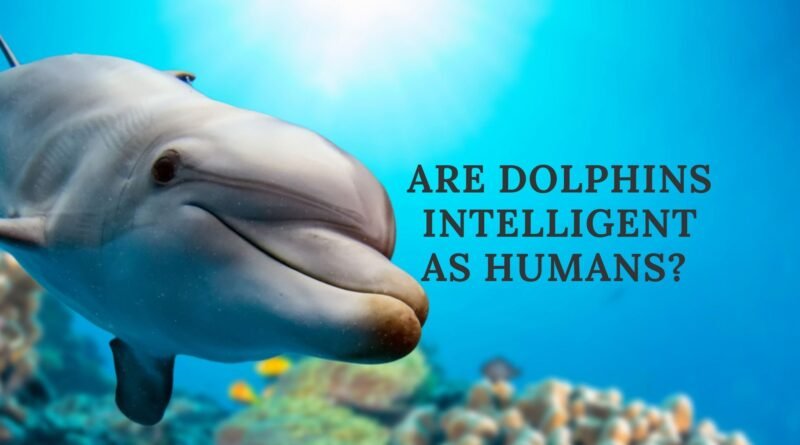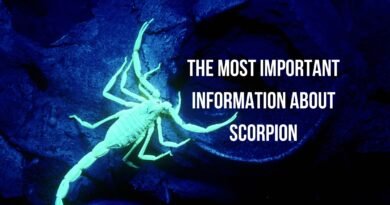Are dolphins intelligent as humans?
Are dolphins as smart as humans or even more intelligent? And if that is the case, shouldn’t we respect them and treat them better than we do now? In the wild, dolphins rule the ocean. Their pods can be seen playing and hunting. But it is sad to see dolphins performing in aquashows and live in captivity just because we want them to. Most people will agree that dolphins are the ‘brainiacs’ of the ocean. Over the years, their bodies, intelligence, sensory systems, and brains have evolved and adapted for living varied and rich lives in water. While they are very different from our own, they are still more like us in several ways than you might suspect. In fact, dolphins behave in a way that suggests a sophisticated and intelligent mind.
The interesting thing is that they don’t just learn as individuals but also pass on their knowledge to others. There are many instances where dolphins have shown their intelligence, and it only makes us wonder how they do that.
In this guide, we dive deeper into the topic, discussing the anatomy and behavior of a dolphin to better understand their nature.
Let’s jump right into it.

Are Dolphins the Smartest Animals?
The current metrics suggest that dolphins are second only to humans in terms of intelligence. The brain to body size ratio of dolphins is second only to humans, but dolphins excel in intelligence-based results. According to research, dolphins are the only mammals after apes that mirror self-recognition, understand abstract concepts, comprehend symbol-based communication systems, and take part in cultural learning. All these are comparable to great apes like chimpanzees and gorillas.
Intelligence can be defined as the capacity to understand new or challenging situations, learn new information and apply knowledge, and the ability to think abstractly.
Dolphins demonstrate all these capabilities, and researchers and biologists believe they are well-informed creatures. The fact that dolphins are intelligent and can learn things means that they can process information easily; no matter how complex it is.
Dolphins are notoriously popular to be good at mimicking stuff and learning information. They have been found to demonstrate self-awareness, empathy, problem-solving, teaching skills, innovation, playfulness, joy, and grief.

So, how intelligent are dolphins?
Well, it is complicated to tell how much intelligence dolphins boast compared to us. We cannot ask a dolphin to take a math test or an IQ test. They communicate differently. In fact, researchers say that dolphins possess alien intelligence because we cannot dig deep into their unfathomable brain and receptors.
Considering the research we have so far; it is deduced that animals with large brains or animals with a brain to body ratio like dolphins have a few things in common. This include:
- Such animals live long lives
- Their behavior is complicated
- They are sociable
- Females give birth to only a few offsprings throughout their lifetime
- They take extraordinary care of their babies, teaching them valuable life skills
- The youngsters take their time to become sexually mature and independent from their mothers

The most obvious difference between a human brain and a dolphin brain that dolphin brains have an entire area dedicated to ‘echolocation.’ You can say it is a superpower that allows dolphins to see underwater with sonar. As compared to light, sound travels much better and faster in water. Therefore, it makes more sense for dolphins to measure their surroundings underwater with sound. We have only started to learn about their echolocation capabilities, and it is safe to say that they are phenomenal. Dolphins can determine and sense extraordinary details about their surroundings with the help of sound. Echolocation helps them to navigate in dark and murky waters and even hunt by sensing potential prey. Interestingly, dolphins can sense pregnancies in other dolphins by echolocating clicks and eavesdrop on other pods to determine what they are looking for.
Spindle neurons is a specialized brain cell found in dolphins and whales. These spindle neurons give dolphins the ability to understand, solve problems, adapt to any changes, perceive, communicate, reason, remember, and recognize.
This is not it; the limbic system of a dolphin’s brain is so complicated than humans. The limbic system helps in processing emotions. Dolphins embed in a complex social network, more complex than humans, and they still are able to process things with ease.
Now you understand why dolphins cannot be compared with humans because their intelligence is on another level that we cannot process.

Here are some facts about dolphins that might interest you:
- Since dolphins are social animals, they live in groups and take part in playing and hunting activities together. A pod of dolphins can have as many as 1000 dolphins.
- Dolphins belong to the family of whales
- A mature dolphin can eat up to 33 pounds of fish in a day
- A mother dolphin nurses her baby for two years
- Dolphins are surface breathers. They cannot breathe underwater
Are Dolphins Smarter Than Humans? Exploring the Astonishing Dolphin IQ Level
When it comes to intelligence in the animal kingdom, few creatures captivate our imagination like bottlenose dolphins. They have long been celebrated for their remarkable cognitive abilities, prompting the intriguing question: Are dolphins smarter than humans in some ways?
Dolphin IQ level has been a subject of fascination among scientists and researchers for years. While it’s challenging to directly compare the intelligence of dolphins and humans due to our vastly different forms of intelligence, there are compelling arguments to suggest that dolphins possess a unique and advanced set of cognitive skills.
Firstly, it’s crucial to establish that dolphins are a subgroup of toothed whales, a category of marine mammals known for their sharp intellect. Among them, bottlenose dolphins stand out as the most studied and well-known species, renowned for their remarkable problem-solving abilities and social behaviors.
One remarkable aspect of dolphin intelligence is their complex social structure. They live in pods, forming intricate relationships and exhibiting empathy, cooperation, and even altruism towards their pod members. These qualities suggest that, in terms of social intelligence, dolphins might indeed rival humans.
Additionally, dolphins eat a diverse diet, including fish, squid, and sometimes even other small marine creatures. Their hunting strategies involve intricate coordination and communication, indicating high levels of adaptability and strategic thinking.
Dolphins’ communication skills are another area of fascination. Their sophisticated vocalizations, clicks, and whistles are not only used for echolocation and navigation but also for intricate social interactions. The ability to convey complex information through sounds has led scientists to speculate that dolphins are the smartest animal in terms of communication.
Now, let’s address the lingering question: How are dolphins smarter than humans? While they may not excel in every aspect of intelligence that humans do, their remarkable abilities in echolocation, problem-solving, and social interaction set them apart. Their use of echolocation to navigate and locate prey in the vast ocean depths is a skill that humans can hardly fathom.
In conclusion, while it’s challenging to definitively declare dolphins smarter than humans, their unique cognitive abilities, intricate social structures, and adaptability in the marine environment make them one of the most fascinating creatures on Earth. Whether you’re pondering their astounding Dolphin IQ level or simply admiring their friendly and playful nature, these carnivorous marine mammals continue to captivate our curiosity and admiration.
So, next time you encounter a bottlenose dolphin or hear tales of their encounters with killer whales or even river dolphins that can survive in fresh water, remember that these majestic creatures hold a special place in the world of animal intelligence and continue to teach us about the wonders of the oceanic realm.
We would love to see dolphins breed and thrive in the wild rather than in captivity.




